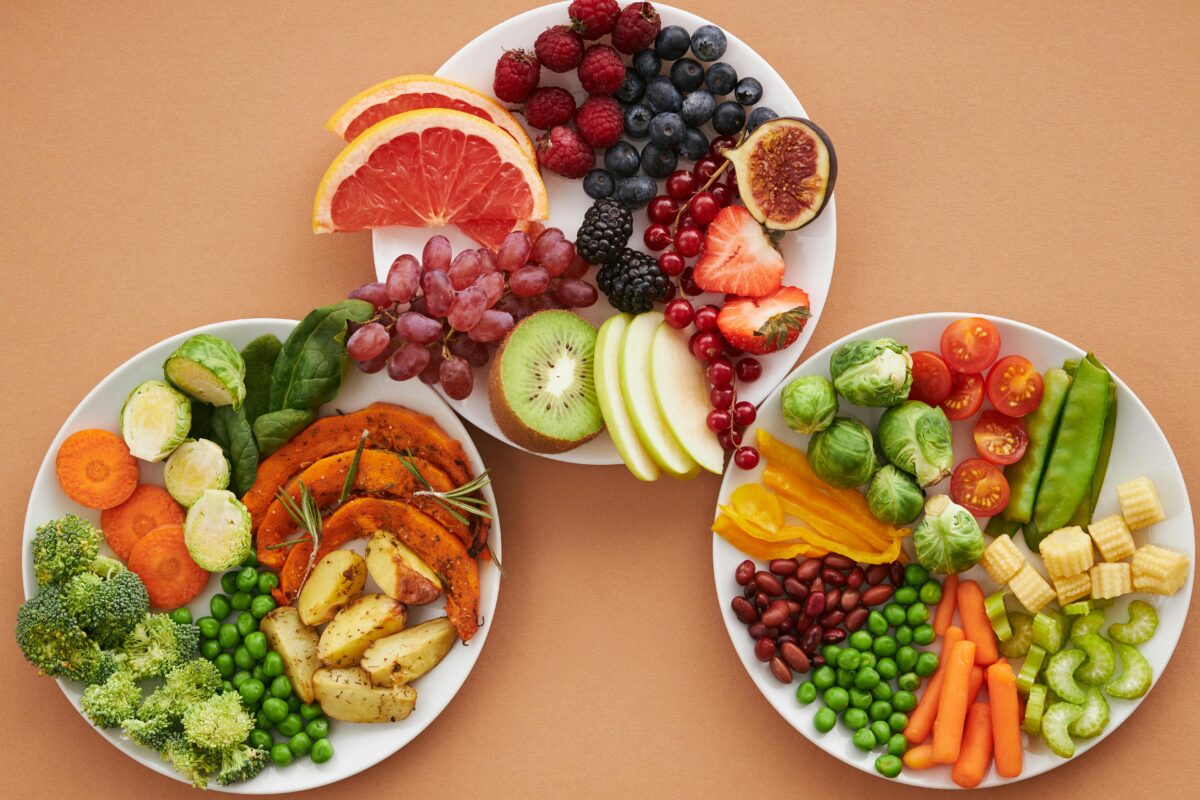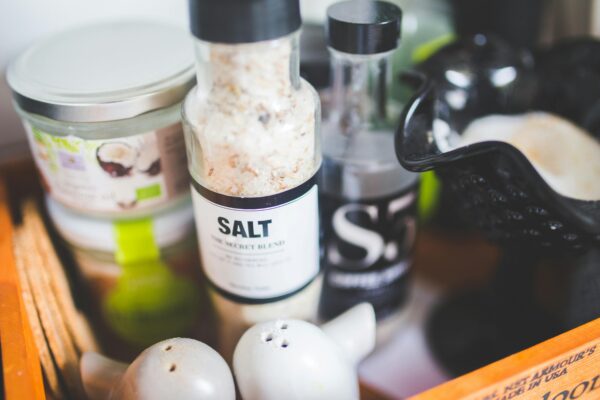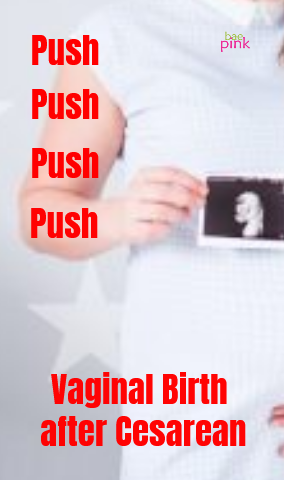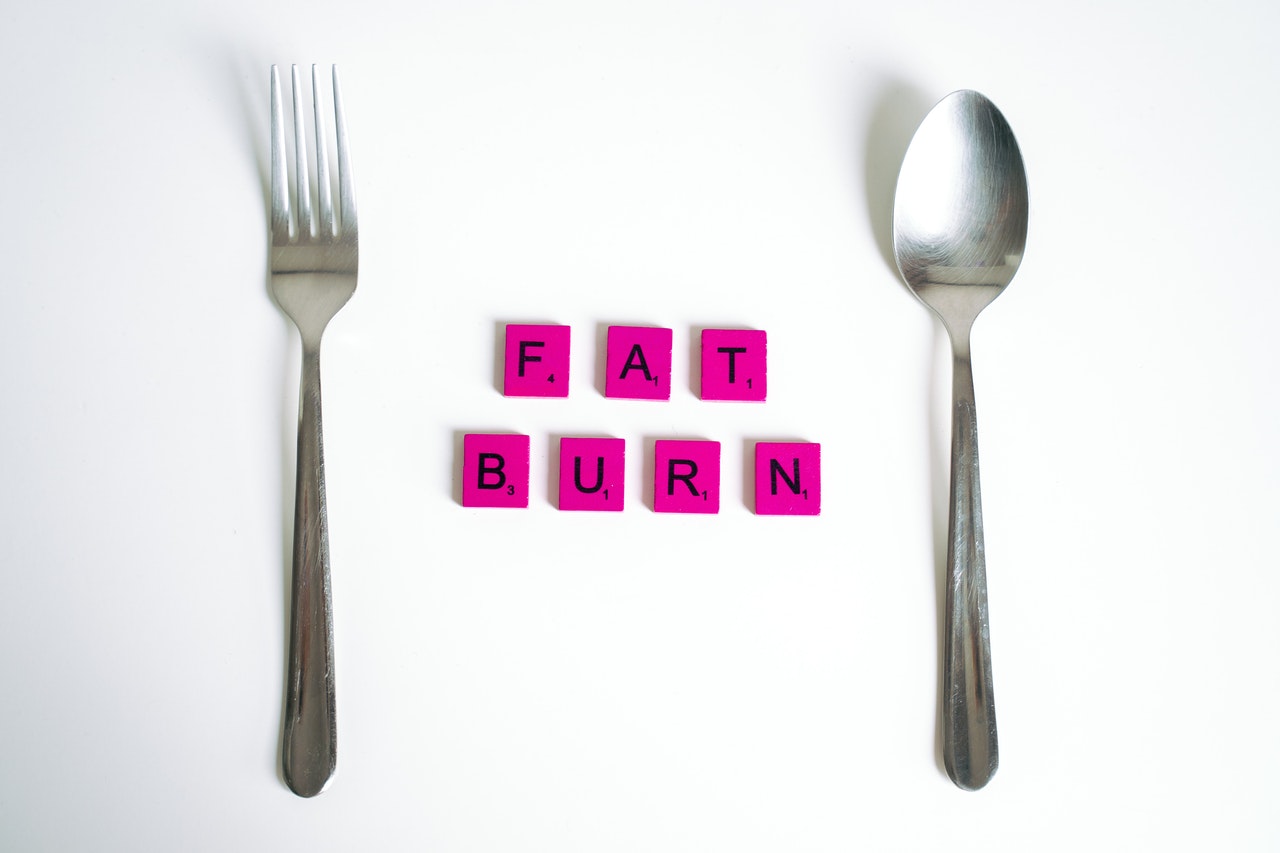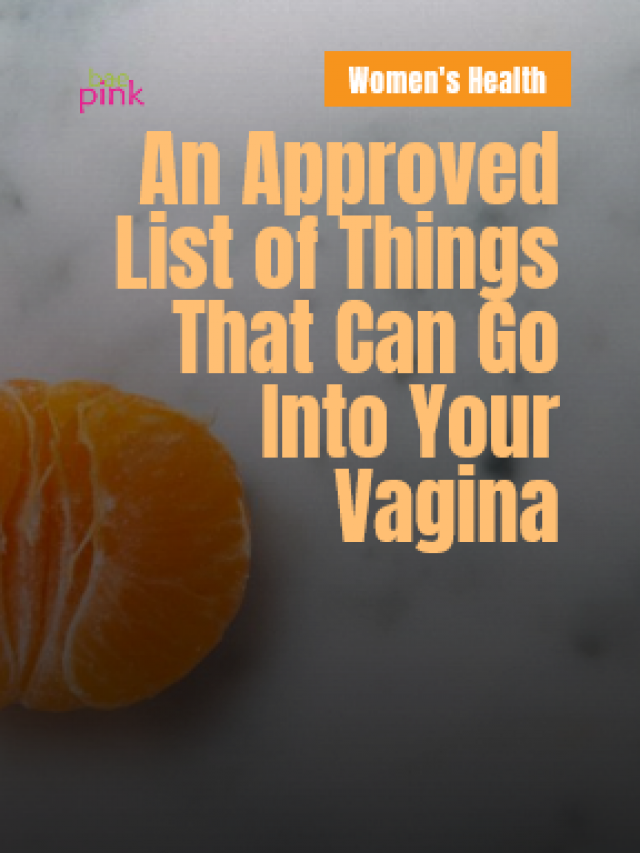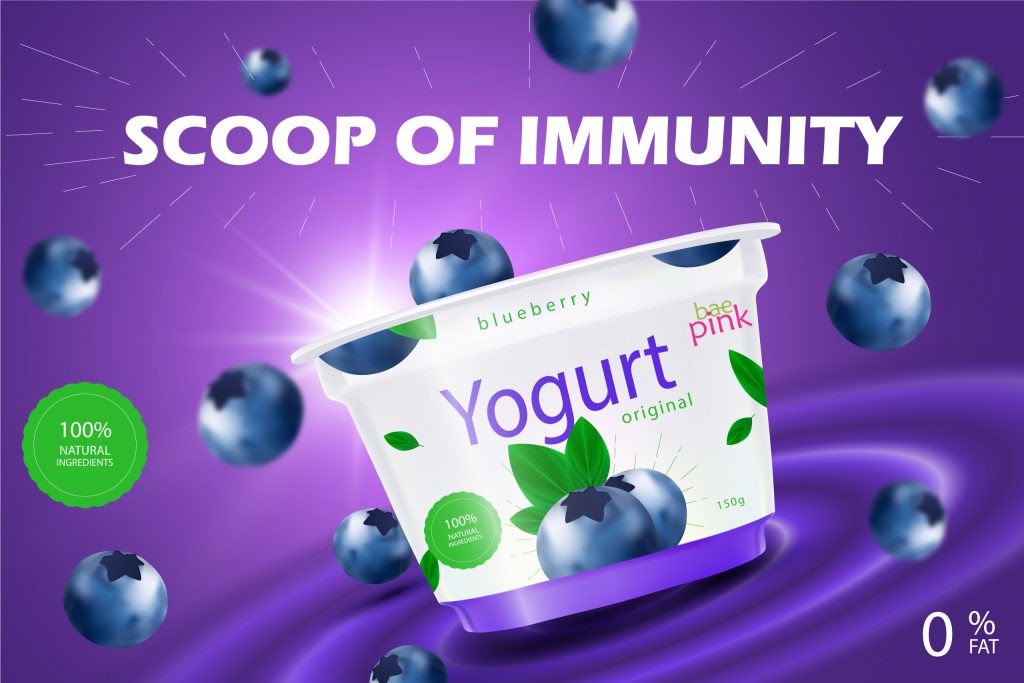What is Infertility?
Infertility can be overwhelming for couples and is associated with several emotional, physical, and sociocultural problems. Approximately 15% of reproductive-age couples in the world are estimated to experience difficulty in conception.
Fertility and Lifestyle changes.
Your lifestyle plays a significant role in boosting the chances of ovulation. It has been suggested in research that simple changes in diet and lifestyle may improve fertility and increase your chance of conception.

One of which is, adding more antioxidants to your fertility diet. Antioxidants are the compounds that help to deactivate the free radicals that damage egg cells and sperm in the body as well as reduce oxidative stress and its negative effects on fertility for both men and women.
Eight Antioxidant-rich Foods can
Boost Fertility.
Keeping this in mind, the following are some antioxidant-rich foods that may be beneficial to those wishing to optimize their diet to boost fertility.
Fruits and Vegetables
Antioxidant-rich foods like fruits and vegetables are high in vitamins, minerals, and folic acid. Adding antioxidants-rich fruits and green vegetables to the diet greatly increases fertility, chances of proper ovulation, and quality of semen.
According to research conducted on preconception dietary intake, women with high fruit intakes had a significantly reduced chance of infertility. It is also reported that high consumption of fruit and vegetables positively influences sperm quality parameters by improving the antioxidant status of semen and blood.
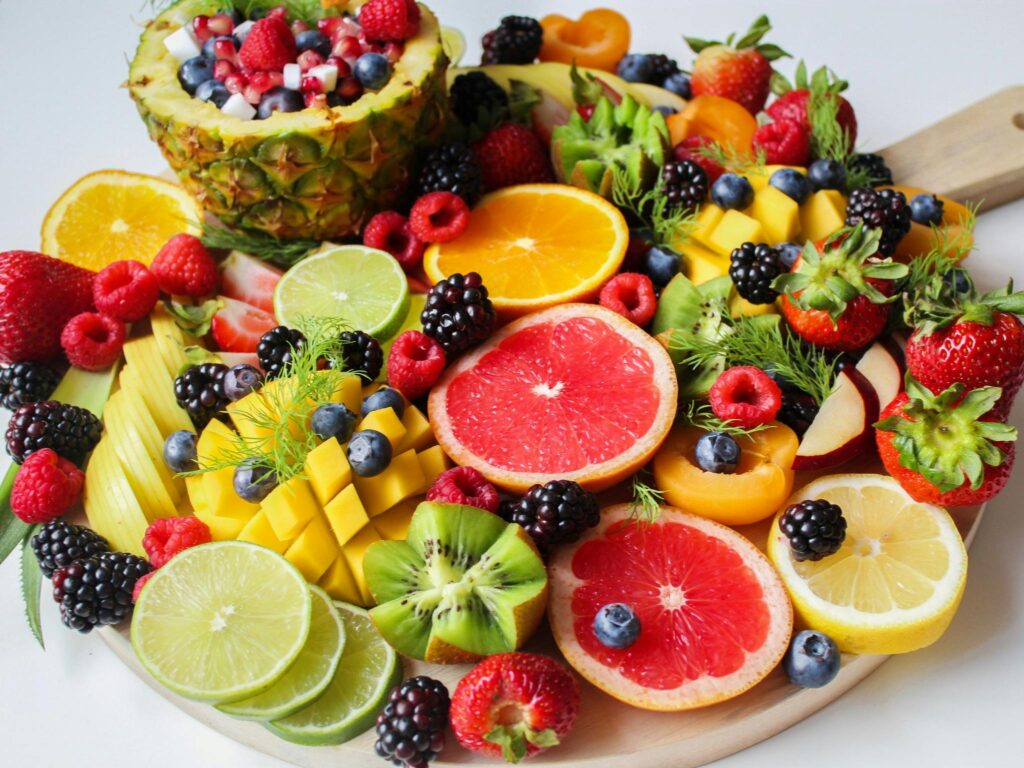
Some Fruits and Vegetables that are known to have great antioxidant potentials are citrus fruits (orange, grapefruit, lime, lemon), grapes, pomegranates, apples, dates, green and yellow vegetables (peppers), cabbage, strawberries, carrots, dark leafy greens, and banana.
Whole grain and Legumes
In the instance of whole grains, corn, wheat, rice, and oats are regarded as grains with high antioxidant activities. Legumes such as lentils, chickpeas, and kidney beans have also shown high antioxidant potential in many studies. These are a rich source of proteins as well as fibers and appear to have a positive impact on fertility.
Various studies have reported whole grains and legumes increase the chances of fertilization, and support assisted reproductive technologies.
Spices
Some spices such as cinnamon, turmeric, cumin, ginger, fennel, and oregano can be a potential source of natural antioxidant substances. These spices are known to decrease inflammation, improve hormonal balance, and increase blood flow to the reproductive organs.

These spices are concluded to prevent ovarian cell dysfunction, normalize the menstrual cycle, increase the fertility index, induce spermatogenesis and thereby improve ovulation and fertility.
Nuts and Seeds
Walnuts contain enormous amounts of antioxidants. Pecans, chestnuts, peanuts, pistachios, and sunflower seeds are loaded with total antioxidants.
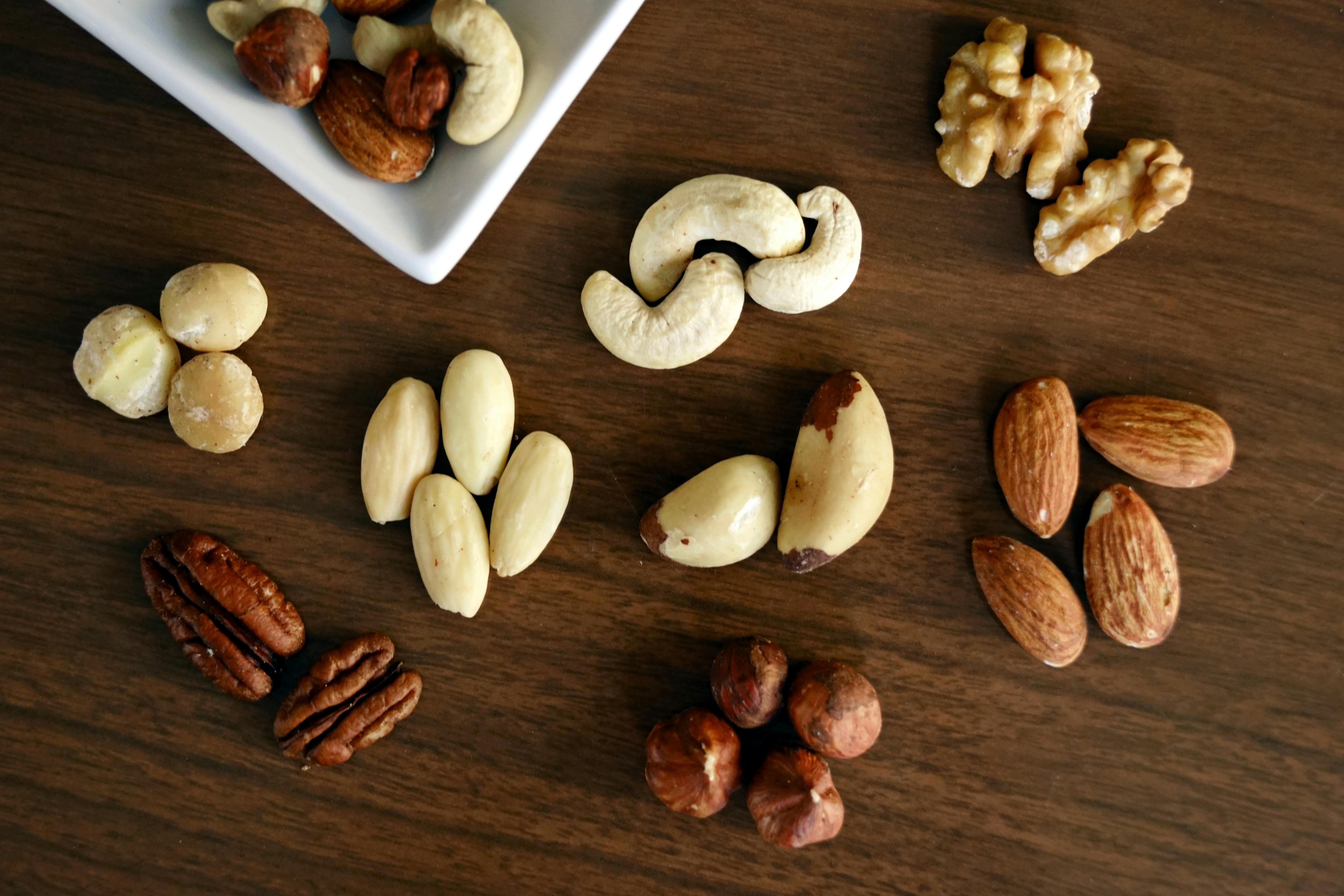
Hazelnuts, almonds, Brazil nuts, macadamias, pine kernels, cashew nuts, flax seeds, poppy seeds, and sesame seeds also contain considerable amounts of total antioxidants. Albert SH reported significant improvement in main sperm quality parameters after the consumption of nuts.
Seafoods
Fish and seafood are excellent sources of nutrients such as omega-3 fatty acids, Vitamin D, and selenium, which play an important role in alleviating oxidative stress.
Selenium is essential for normal testicle development, spermatogenesis, and sperm motility.
Omega 3 is reported to improve fecundability resulting in higher chances of conception.
Green tea
Green tea contains polyphenols, which include flavanols, flavandiols, flavonoids, and phenolic acids. Green tea polyphenols have antioxidant properties that ameliorate major semen parameters, including sperm concentration, motility, morphology, DNA damage, fertility rate, and sperm quality.
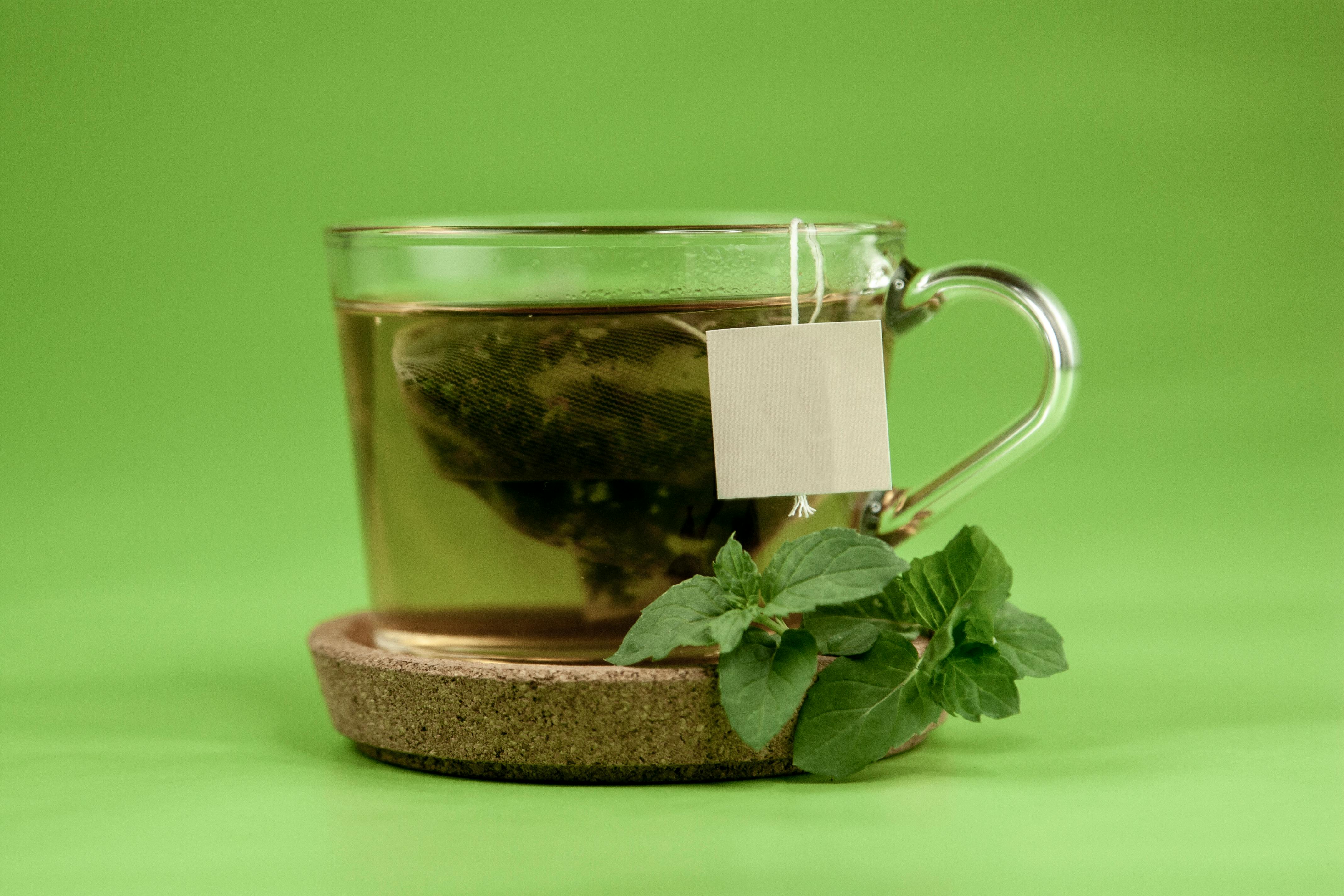
These unique properties of green tea catechins could help to improve reproductive health and fertility.
Dark chocolate
Chocolate is effective in improving overall longevity, sexual appetite, and fertility. These health benefits are ascribed to the presence of cocoa in chocolate. Cocoa contains more phenolic antioxidants than most foods. Flavonoids, including catechin, epicatechin, and procyanidins predominate in antioxidant activity, which helps with the quality of both sperm and egg cells. The bioactive constituents of cocoa may contribute to reducing reproductive difficulties through actions directly exerted on the vascular endothelium and circulation.

However, that note, that, dark chocolate made with 70% cocoa or higher must be ideal for health benefits. Milk chocolates with higher milk and sugar content should be avoided, as it is reported that milk can reduce the chocolate’s antioxidant capacity by 30%.
Asparagus
Asparagus has a high nutritional value. Asparagus is rich in several bioactive compounds and is reported to be associated with great therapeutic antioxidant potential. It is considered a female tonic in Ayurveda.
Despite being a rejuvenating herb it is beneficial in female infertility, as it increases libido, cures inflammation of sexual organs, enhances folliculogenesis and ovulation, prepares the womb for conception, and prevents miscarriages.
Nourishing Your Fertility.
While there is no magic food or fertility diet that will magically boost your chances of conception, adopting a nutritious and well-balanced diet rich in antioxidants can certainly help to support the reproductive health of both men and women. Add these highly antioxidant foods to your diet and nourish your journey of parenthood!


